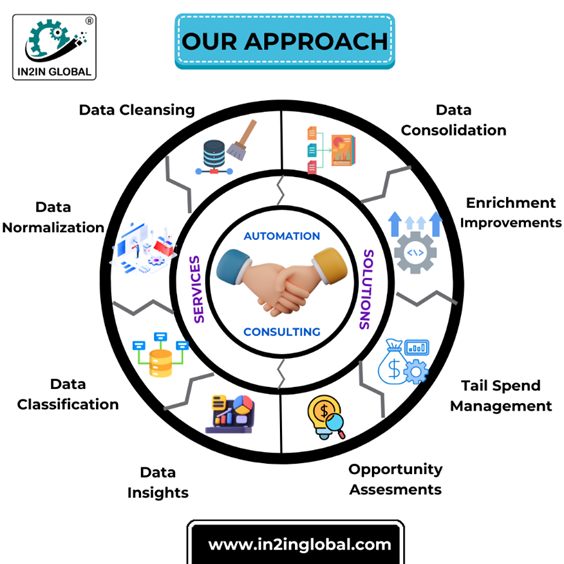How a Data Analytics Course with Internship Can Transform Your Skillset
Introduction:
In today's data-driven world, the demand for skilled data analysts is at an all-time high. Companies across various industries are constantly seeking professionals who can analyze large sets of data to extract valuable insights and drive informed decision-making. This increasing demand has led to a surge in the popularity of data analytics courses, with many offering internship opportunities as part of their curriculum. In this blog post, we'll explore how enrolling in a data analytics course with an internship component can transform your skillset and open up new career opportunities.
 |
Enrolling in a data analytics course with an internship
component can truly transform your skillset in several ways:
- Hands-on
Experience: Internships provide hands-on experience with real data
sets, allowing students to apply their theoretical knowledge to practical
scenarios and gain valuable insights into the data analysis process.
- Industry
Exposure: Internships offer exposure to different industries and
business environments, allowing students to gain a better understanding of how data analytics works in various contexts.
- Professional
Development: Internships provide opportunities for professional
development, allowing students to refine their analytical skills,
communication skills, and problem-solving abilities under the guidance of
experienced mentors.
- Networking
Opportunities: Internships offer networking opportunities with
industry professionals, enabling students to build valuable connections
and expand their professional network.
- Career
Advancement: The skills and experience gained through a data analytics
course with an internship can significantly enhance one's employability
and career prospects in the field of data analytics.
Data analytics skills are highly sought after in today's job
market for several reasons. Firstly, businesses generate vast amounts of data
on a daily basis, ranging from customer demographics to sales figures and
market trends. Without the ability to analyze and interpret this data
effectively, companies risk missing out on valuable insights that could inform
their strategic decisions.
Secondly, data analytics skills are essential for
identifying patterns, trends, and correlations within data sets, enabling
organizations to optimize their processes, improve efficiency, and gain a
competitive edge in the market. Whether it's identifying customer preferences,
predicting market trends, or optimizing supply chain logistics, data analytics
plays a crucial role in driving business success.
The
Benefits of Enrolling in a Data Analytics Course
Enrolling in a best online data analytics course provides individuals
with the opportunity to acquire the knowledge, skills, and techniques needed to
excel in this field. These courses typically cover a range of topics, including
data visualization, statistical analysis, machine learning, and data mining,
among others. By learning these fundamental concepts and techniques, students
can develop a solid foundation in data analytics and gain the confidence to
tackle real-world challenges.
Furthermore, many data analytics courses offer hands-on
experience through practical assignments, case studies, and projects. These
practical exercises allow students to apply their newfound knowledge to real
data sets and gain valuable insights into the data analysis process. By working
on real-world projects, students can hone their analytical skills,
problem-solving abilities, and critical thinking capabilities, all of which are
essential for success in the field of data analytics.
The Role of Internships in Enhancing Skillsets
One of the key advantages of enrolling in a data analytics
course with an internship component is the opportunity to gain real-world
experience in a professional setting. Internships provide students with the
chance to apply their classroom knowledge to actual business scenarios, work
alongside experienced professionals, and gain insights into industry best
practices.
During an internship, students may be tasked with a variety
of responsibilities, such as collecting and analyzing data, creating
visualizations and reports, and presenting their findings to stakeholders. By
actively participating in these activities, students can develop practical
skills that are highly valued by employers, such as data manipulation, data
cleaning, data visualization, and communication.
Moreover, internships offer students the chance to network
with professionals in the field, build industry connections, and gain valuable
feedback on their work. These networking opportunities can prove invaluable
when it comes to securing future job opportunities or advancing one's career in
the field of data analytics.
Conclusion
In conclusion, enrolling in a data analytics course with an
internship component can be a transformative experience that equips individuals
with the knowledge, skills, and practical experience needed to excel in the
field of data analytics. By combining theoretical learning with hands-on
experience, these courses provide students with a comprehensive understanding
of data analysis techniques and prepare them for success in the ever-evolving
world of data analytics. Whether you're looking to kickstart your career in
data analytics or advance your existing skills, a data analytics course with an
internship can be the key to unlocking new opportunities and achieving your
professional goals.



Comments
Post a Comment